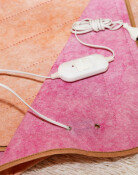An Old Korean-American Scholars Love For His Home Country
An Old Korean-American Scholars Love For His Home Country
Posted December. 11, 2003 23:16,
Behind an international research achievement, there was Kim Yoon-bum, a 76-year-old professor of medicine at the University of Chicago, who made the research possible by donating to the team a germ-free miniature pig that he raised through 40 years of research.
Professor Hwang said, Half of what we have achieved is attributable to Professor Kim . It was also fortunate for our country to have the donation of the germ-free mini pigs that every scholar in the world who researches reproduced pigs desires.
Reproduction technology had already been significantly developed six years ago, but it was essential for the experiment to be successful that we have a perfectly germ-free mini pig that was at least 10-years-old. This is because the breed has organs of similar size to human ones and because the experiment required pigs that had been absolutely germ free for at least 10 years, he said.
By taking a cell from a germ-free pig and inserting a human immune gene into it, one can then reproduce pigs that produce organs transplantable to humans. Organs from normal pigs cannot be transplanted since they contain different microorganisms.
However, there was no way to find a suitable pig for the experiment. A pig is germ-free until the moment before the Caesarian operation that releases it from its mother, but it is infected with viruses instantly when revealed to the outside air.
In the midst of this difficulty, Professor Kim came to Professor Hwang after hearing of the problem during an international conference held at Seoul National University on December 26 of last year. Professor Kim said, I will give you a germ-free mini pig that Ive raised for the last 30 years, so please put your efforts into developing the first pig with human-transplantable organs so that it is from Korea.
Professor Kim has worked on producing germ-free pigs for the purpose of immune system research since 1960s and succeeded in producing them in 1973; he owns approximately 100 of these miniature pigs in his laboratory.
He said, Ive lived in the U.S. for 40 years, but Ive always hoped to do something for the country. Isnt it the most wonderful thing if my lifetime achievement in research can be used in the research of my home country?
However he also said, I would not have given the pig even to my home country if the team were without actual abilities. For this reason, he checked the research progress and visited the laboratories and farms of Professor Hwangs team himself, despite old age.
As I looked around the lab, I grew confident that this research would be a definite success. It was rare that scholars from different sectors such as medicine, veterinary medicine and natural science cooperated so closely and passionately on a project.
Since then, Professor Kim has not spared encouragement and advice and has watched the experiment progress. He also shared the joy of its success, visiting Korea for the announcement ceremony on December 10.
I have been doing research for 40 years so far, but I still have much to learn. I always tell my colleagues and students not to despair as one can learn much more from failures. This is because the word research means to re search for the truth, again and again.
He continued, saying, The success of this research is a subject of pride for our country, and I hope that a day when germ-free pigs can be used for many people in need of organs comes soon.
podragon@donga.com







